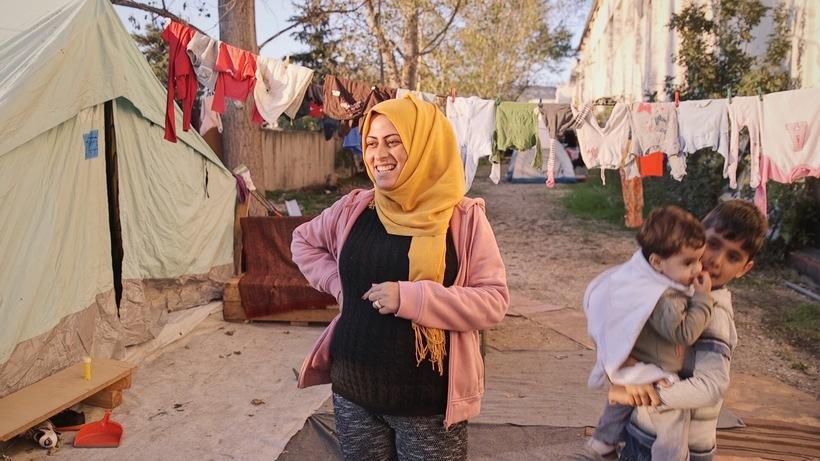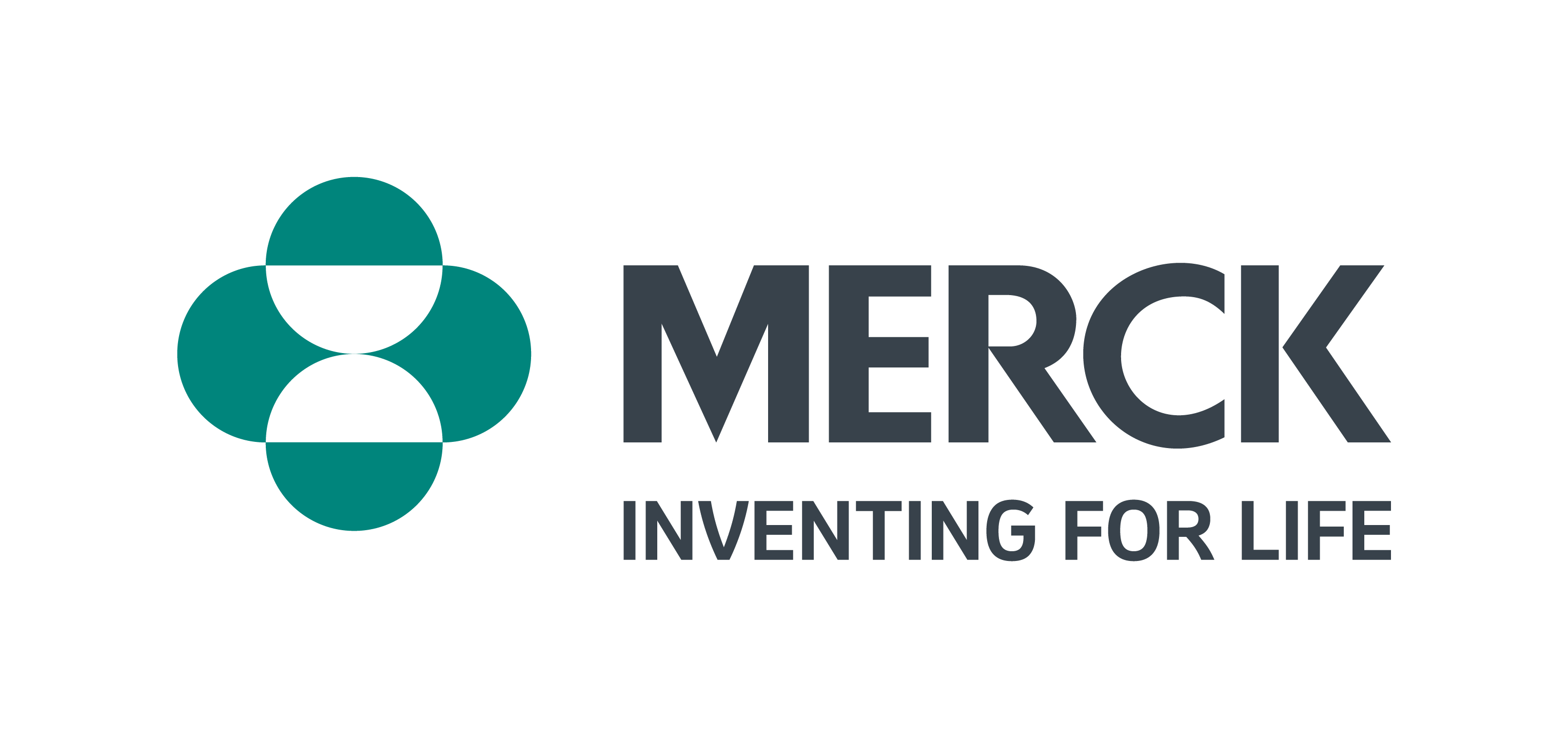Pregnant and On the Run: We Must Do Better to Protect Refugees on Their Journeys to Motherhood
by Mary-Ann Etiebet, Executive Director, Merck for Mothers

This article first appeared on HuffPost.com
I keep thinking about Nour from Syria, who at age 22 discovered she was pregnant with her first child while running for her life. I think of how Nour spent her pregnancy: uncertain, undernourished, waiting things out in a cold tent at a refugee camp in Greece. I imagine her experiencing the pains of labor, and delivering her baby surrounded by strangers speaking a language she didn’t understand. I imagine the confusion and fear she must have felt in those moments, a time when most women feel vulnerable even in the best of circumstances.
Nour’s story figures prominently in the ongoing TIME series, Finding Home. The series follows the personal journeys of three Syrian women as they experience pregnancy, childbirth and new motherhood while trying to start new lives, away from war. (Merck for Mothers* is a sponsor of the series, which features the work of photojournalist Lynsey Addario, through a partnership with TIME.)
These are important stories to understand. Given the unprecedented scope and scale of the current global refugee crisis, the maternal and reproductive health needs of women like Nour are too easily overshadowed, and overlooked.
They mustn’t be. Sixty percent of all maternal deaths occur in settings like these, areas affected by conflict, natural disasters and other humanitarian emergencies – more than 500 women lost every day. Most of these deaths are preventable, the result of poor quality care, or poor access to care. Without proper and timely care throughout pregnancy, during labor and delivery and in the days and weeks after childbirth, treatable complications turn deadly.
And there are serious repercussions in how these personal journeys into motherhood turn out. What happens to mom affects everybody around her. By taking better care of mothers, we increase the chances that her children stay healthy, get educated and reach their full potential; that they go on to contribute to, or even transform society for good. Saving mothers should be a priority for every country.
Finding Home sheds light on the larger systemic issues affecting pregnant refugees in the telling of a few individual birth stories. It is a powerful and effective way to raise awareness and draw attention to the challenges they face – and to deepen our understanding of the work that we must do in order to end maternal mortality.
New research by Doctors of the World (Medecins du Monde, or MDM for short) has done the same, by exposing the many practical as well as cultural barriers to care for these women entering the EU through Greece. MDM, an NGO that relies on volunteers for much of its field work, is striving to expand maternal and reproductive health services for refugees and migrants through its clinics and mobile units, with support from Merck for Mothers. Through interviews with 14,000 vulnerable women, MDM researchers found that fewer than half had access to care before joining the Doctors of the World Mother & Child program.
As Dr. Hara Tziouvaras, a pediatrician-neonatalogist and member of MDM’s board of directors, explained during a panel discussion we hosted during the United Nations General Assembly, refugees are often reluctant to seek the services they need for fear of arrest or discrimination. Many aren’t aware of their rights to receive care. “Prenatal care and postnatal care are absolutely essential for these women, and they’re not getting it,” Tziouvaras said. Access to contraception and family planning services is also vital, she added, and they’re not getting that either. I recently visited one of the clinics in Athens, Greece, where she volunteers. The waiting room felt more like a community meeting space, a place of safety and trust for these women caught between worlds.
Upon releasing its findings, MDM issued a set of policy recommendations for European Union member states and institutions on how to remove barriers to care and ensure equal access. Key measures include observing patient confidentiality (making residency status immaterial); recruiting bilingual health workers; creating a supranational funding mechanism that would ensure a free package of maternal health care for every vulnerable woman; and expanding the use of electronic health records to facilitate follow-up and continuity of care, which are particularly challenging for women on the move.
Policymakers have a critical role to play in pushing for change. We look to longtime advocates like the President of Malta, Her Excellency Marie-Louise Coleiro Preca, who signed a call to action in March urging governments to integrate maternal health into their refugee plans and ensure care for all women regardless of origin or citizenship, to help lead the charge. Coleiro Preca understands the need to work across sectors, and to create a participatory process for developing solutions, one that listens to the voices of the women we’re trying to serve. As she so eloquently expressed at our UNGA event, “maternal health is not a women’s issue, it is a fundamental human rights issue.”
These women deserve strong champions. I am encouraged by the World Health Assembly’s recent call to make health care for refugees and migrants a priority, and by the attention that is being paid to our partner’s efforts, but we are only at the starting point. We must continue to work together across sectors to eliminate the gaps in care and to strengthen health systems so that all women, no matter who they are or where they are from, can get the care they need, when they need it.
* Merck for Mothers, known as MSD for Mothers outside the United States and Canada, is a 10-year, $500 million initiative focused on improving the health and well-being of mothers during pregnancy and childbirth.

